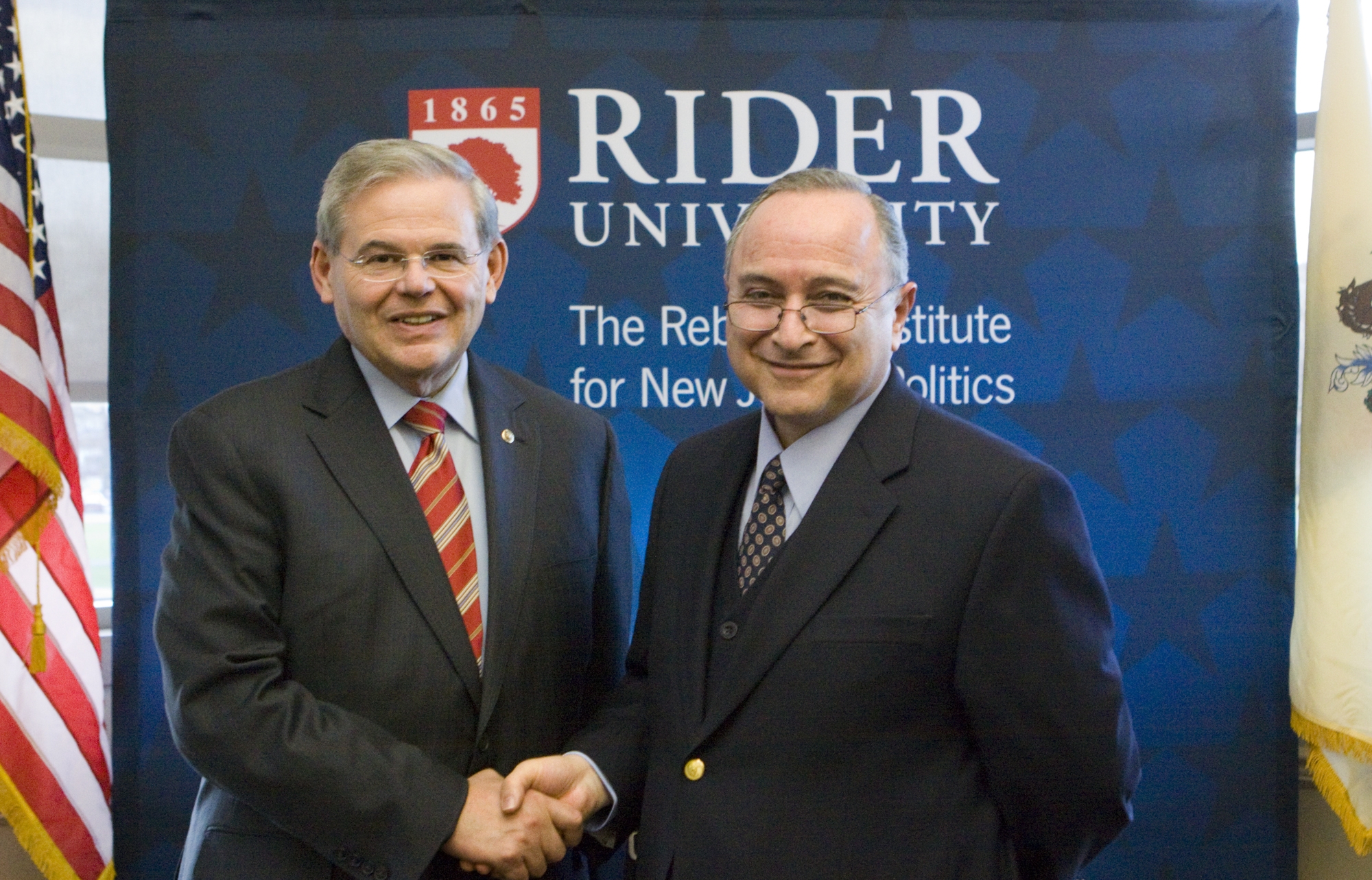Wednesday, Mar 23, 2011
Despite numerous fiscal challenges, Sen. Bob Menendez says now is not the time to forsake people in need, and that the choices this government makes will define it, for better or worse, to the world.
by Sean Ramsden
The choices our nation makes are the very things that define us, particularly in times of crisis or turmoil, according to Sen. Bob Menendez of New Jersey. “What is our vision of the America we call home? What is it we want life in America to be?” were the questions the Democrat posed to a capacity audience, which included U.S. Rep. Rush Holt, inside the Mercer Room at Rider University on March 22. Menendez, a native of Hudson County, was a guest of the Rebovich Institute for New Jersey Politics as part of its Governing New Jersey Series.
Menendez reflected on the values he most ascribes to the United States through the experiences of his mother, who fled Cuba in search of freedom. “She left everything behind to come to a place where no one was waiting for her,” said the senator of his mother, who settled in the heavily Cuban enclave of Union City, N.J., upon her arrival. He recalled growing up in a tenement without any particular surplus of food or clothing, yet having guests from the building share dinner at his family table, a situation that left the young Menendez puzzled.
“They are worse off than we are,” he recalled her explaining of their neighbors. “So, this opportunity to share is the right thing to do.” It was an example of aiding his fellow man that Menendez said has remained with him throughout his career in public service.
With that in mind, Menendez framed the current federal budget battle, which is deeply divided across partisan lines. While he understands the calls for fiscal austerity, Menendez said now is not the time to forsake people in need, and that the choices this government makes will define it, for better or worse, to the world.
“Show me your budget, and I’ll tell you what your values are,” he said.
Menendez discussed the days preceding the 2008 financial meltdown, when the mortgage crisis caused several large investment firms to fail before the federal government intervened.
“The chairman of the federal reserve, Ben Bernanke, told the banking committee that more banks will fail and put the entire economy at the risk of a systemic collapse,” he said. “He let us know that we were perhaps just two weeks from a global meltdown that would be worse than the Great Depression.”
Plotting that time as a starting point for the current budget debate, Menendez championed the decision of the government to step in and save a number of shaky banks and United States automakers, rejecting the idea that it represented interference in the free market.
“Our rescue of the auto industry was excoriated by many in Washington, but not only was every cent repaid, but we actually made a handsome profit based on some choice stock we took,” he said, adding that he also supports stronger banking regulations. “I believe in a free market, but not a ‘free-for-all market.’”
At the same time, Menendez said, President Obama took office saddled by the Bush Administration’s decision to fund two foreign wars without any increased tax revenue. “Our choices speak to our collective values as a country,” he said.
Though the economy now appears to be in a state of recovery, Menendez said that investments in innovative technologies and education are vital to launching the United States to new heights, but that honest bipartisan cooperation will be key to moving forward.
“Any agenda has to begin with civility,” he said. “We can disagree, but policy has to be based on fact.”
Challenges abroad also drive challenges at home, Menendez said, pointing to political unrest in Northern Africa and the Middle East.
“The course of events in the world have real meaning to us here,” said the senator, who sits on the foreign relations committee. “If you don’t believe this, tell me what you see at the gas pump.”
Still, what our nation does in challenging times gives it the opportunity to stand high in the global community.
“I believe strongly I the power of America’s example, and the power to lead in the rest of the world is an opportunity to also effect change at home,” he said. “Our leadership in the world is not accidental.”

